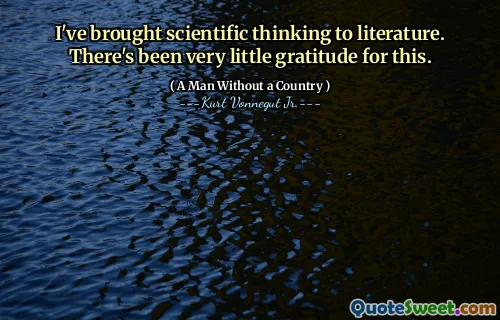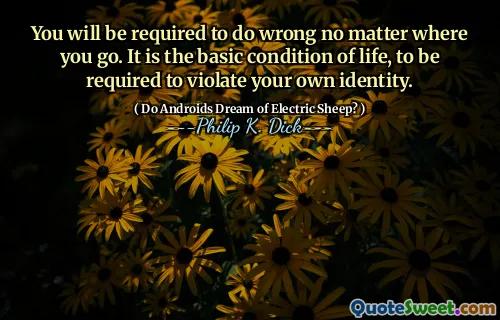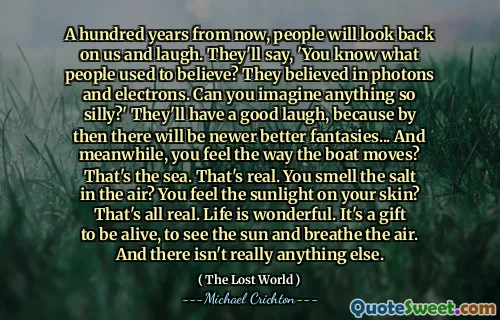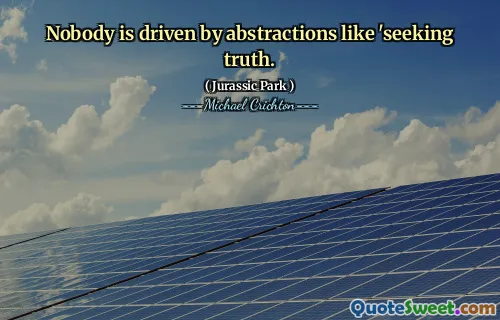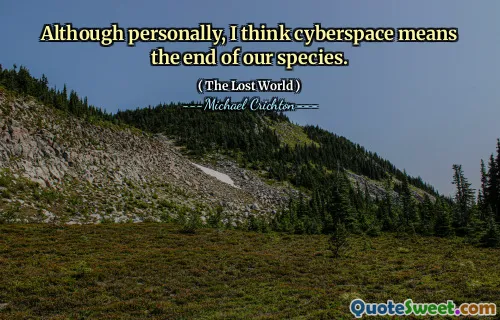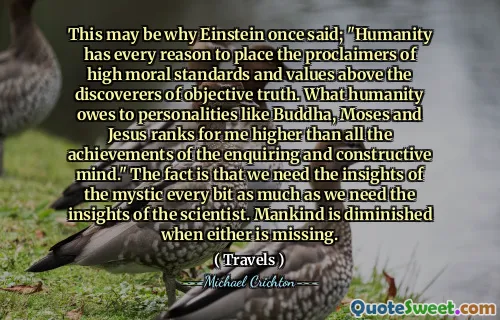
I think the reason people are dealing with science less well now than 50 years ago is that it has become so complicated.
The quote highlights a significant challenge in the relationship between science and society: the increasing complexity of scientific knowledge. Over the past half-century, scientific advancements have accelerated at an unprecedented pace, resulting in breakthroughs that often require specialized training to understand fully. While this explosion of knowledge is undoubtedly beneficial, it has inadvertently created a chasm between scientists and the general public. Many individuals no longer feel equipped to grasp the intricacies of modern scientific concepts, leading to decreased trust, misinterpretations, or skepticism about scientific endeavors. This can impact important societal issues such as public health, climate change, and technological innovation, where informed participation is crucial.
However, the complexity also reflects the remarkable progress of human endeavor. Simplifying scientific explanations for broader audiences without losing essential accuracy is a continuous challenge. Educators, communicators, and media have a vital role in bridging this understanding gap. Efforts to make science accessible through clear language, visual aids, and community engagement are more important than ever. The reflection on increased complexity invites us to consider how to foster scientific literacy and appreciation without oversimplifying, ensuring that society can responsibly engage with and support scientific progress. It also pushes the conversation on whether new methods are needed to communicate science more effectively, fostering a more scientifically literate world that can better deal with the complexities of modern issues.
The sentiment expressed underscores an ongoing tension: embracing the wonders of scientific discovery while ensuring that such knowledge remains accessible and meaningful to everyone. As we continue to delve deeper into the frontiers of science, maintaining an effective dialogue between experts and the public will be vital for making informed decisions and fostering trust in scientific processes.






